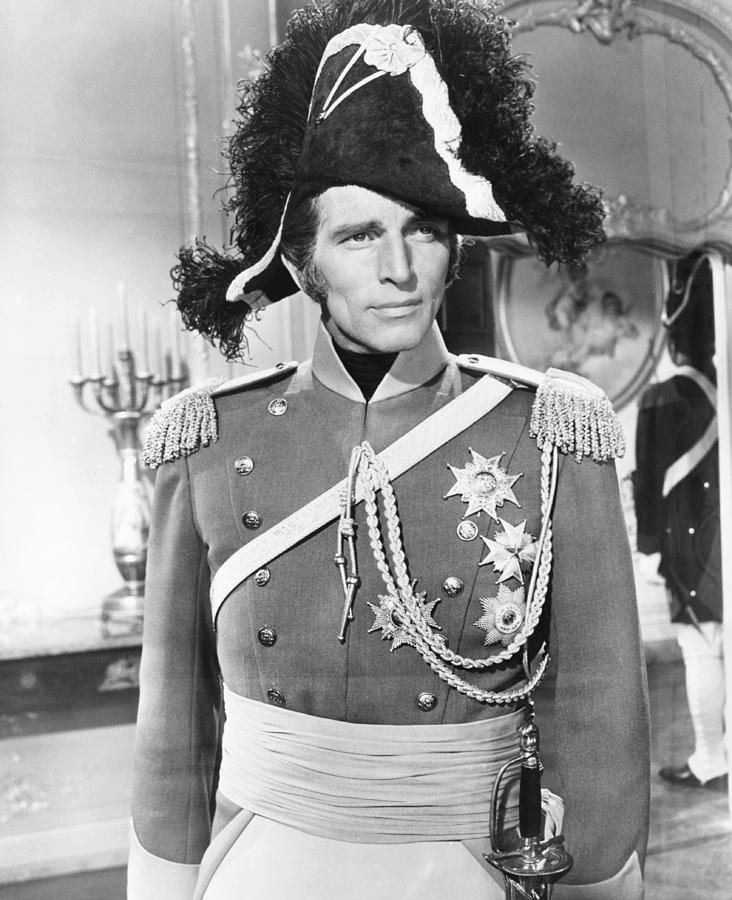The Other Other Woman
When I was a pre-teen I watched the 1954 Marlon Brando film, "Desiree," and didn't realize that I did. That happened to me often while watching a Saturday afternoon film. I didn't realize I was watching, "The Godfather," for the first time until I was at least an hour into it and wondered why I couldn't keep my eyes off of the screen.
I was hardly interested in the weirdly overly-hyped but unrealized love affair of Napoleon Bonaparte and Desiree (what a little turd, amirite?), but was taken totally with Michael Rennie's portrayal of Jean-Baptiste Bernadotte (known historically as Charles XIV John of Sweden).

This film isn't great (the costumes are wonderful to see when you're living on a farm in rural Pennsylvania, though), but I found myself thinking of this character days after the film ended. I think I felt that there was this sense of injustice regarding the lack of acknowledgement of the nature of this character and the wise decisions that he made - and how he loved Desiree wholeheartedly but not as turbulently as Brando's Bonaparte. It was as if there was no second-glance to the nature of someone that isn't absurdly and destructively passionate. It was probably my raging pre-teen hormones at the time, but I immediately thought of this film and my reaction to it when a story was relayed to me this past week.
Somehow I ended up as a participant in a tale that a coworker relayed about her recent marriage - to a man that cast her as the, "other woman," more then once in their thirty years of acquaintanceship. The tale of how she looked him up from time-to-time, how eventually she found that he had put his wife in a nursing home and then later discovered his wife's obituary. Then a call that lead to lunch that lead to a proposal. How, it seemed, that she never stopped caring about this person with another life that was lived from beginning to end while she half-pined. How, it sounded, she was so happy with the idea of finally getting to be with him in holy matrimony. And all I could manage to eek out was, "Well, it certainly seems as though it was meant to be, doesn't it?" as I could feel a look of horror creep across my face. Luckily for the both of us, this yarn was being woven over the phone.
I think about the other other woman when the shade of negativity was thrown at the memory of her. I got the impression that the other other woman was high-maintenance, that she didn't keep house, and that she became the increasing burden on a man who was someone else's meant-to-be. I listened as my coworker relayed the struggle with convincing her new husband that she was not going to act like the other other woman: that she wasn't his deceased wife.
I embodied the other other woman in that moment (the fleeting memory that is shaded by all the wonderful things she hadn't done and all of the terrible things she had), but not for the first time and not even the second (and painfully not the third). I don't know her name. I won't know her, but there is a part of me that knows her when I turn the mirror on myself.
The Germans haven't come up with a word that fully encompasses the feeling of foolishness that comes from being the other other woman that is prey to the skewed stories that justify untruths that allow the decisions. But, there is Fremdschamen: the embarrassment of it all for her...and it is in my ears and heart. There is that sense for the other other woman - holding that foolishness for her when she knows not.
My projections onto her memory is my own assumption - reliving my own trauma in discovering that foolishness for myself about myself. The feeling temporarily cuts through the joys that I live now as if there is some kind of branding. As if I can be covered with a beautiful sweater but the branding scars my skin forever. This is fleeting, though. Even as I relay this, the grip loosens and the anguish of that moment is now a more distant memory of a story that I once heard. The scar is there, but it is just among the rest of the battle wounds that find their way onto any body. Anybody.
The other other woman is not me this time. The shade is not mine. The other other woman is not me this time. The shade is not mine.

Comments
Post a Comment